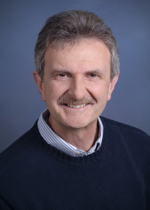- Home
- Live Webinars
- Recorded Webinars
- Speakers
- State Requirements
- FAQs

Richard Tedeschi, Ph.D.
Richard Tedeschi, Ph.D. is Professor Emeritus in the Department of Psychological Science at the University of North Carolina at Charlotte, and Distinguished Chair of the Boulder Crest Institute for Posttraumatic Growth, in Bluemont, Virginia. He has published several books and numerous professional articles on posttraumatic growth, an area of research that he developed that examines personal transformations in the aftermath of traumatic life events. Dr. Tedeschi serves as a consultant to the American Psychological Association on trauma and resilience, is a Fellow of the Division of Trauma Psychology and the Division of Psychotherapy, and is Past President of the North Carolina Psychological Association.
View Curriculum Vitae